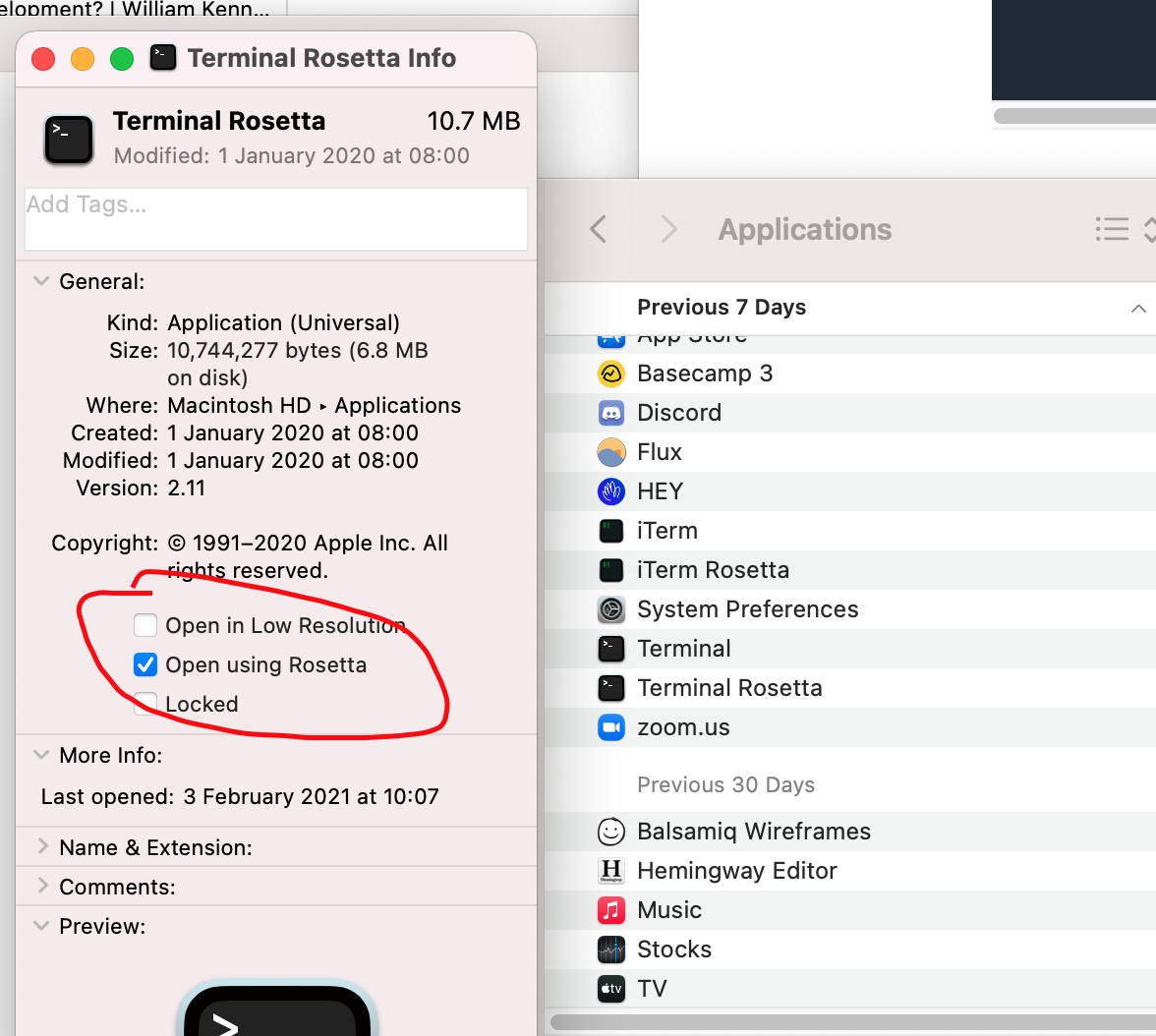How to Configure your Mac M1 for Ruby on Rails development?
 A nicer picture of my new Mac Mini. Photo by Quinton Coetzee on Unsplash
A nicer picture of my new Mac Mini. Photo by Quinton Coetzee on Unsplash
Recently I bought a Mac mini with 16GB of RAM. I’m pleased with the machine, but I had initial issues setting up everything. This blog post should help you get setup. The solution is so simple. Scroll down if you are in a hurry.
Background
Here are some stack traces I encountered while installing rbenv:
-> https://cache.ruby-lang.org/pub/ruby/2.7/ruby-2.7.2.tar.bz2
Installing ruby-2.7.2...
ruby-build: using readline from homebrew
BUILD FAILED (macOS 11.1 using ruby-build 20201221)
Inspect or clean up the working tree at /var/folders/z1/dm8dx54j1dlgxk4zrq__x22r0000gn/T/ruby-build.20201221160748.90156.i6p4m0
Results logged to /var/folders/z1/dm8dx54j1dlgxk4zrq__x22r0000gn/T/ruby-build.20201221160748.90156.log
Last 10 log lines:
installing default nkf libraries
compiling date_strftime.c
installing default console libraries
linking shared-object objspace.bundle
compiling date_strptime.c
linking shared-object io/nonblock.bundle
linking shared-object io/console.bundle
linking shared-object nkf.bundle
linking shared-object date_core.bundle
make: *** [build-ext](#) Error 2
Here is what happened when I tried to install the ruby-idn gem:
ERROR: could not find idn library!
And here is an example of what happened with the ffi ruby gem
ruby-build: using readline from homebrew
BUILD FAILED (macOS 11.1 using ruby-build 20201210-10-g5de6d5f)
Inspect or clean up the working tree at /var/folders/mz/q1f7_y852v7__rt9f3lm0yd40000gn/T/ruby-build.20201229181439.24184.CZQlN7
Results logged to /var/folders/mz/q1f7_y852v7__rt9f3lm0yd40000gn/T/ruby-build.20201229181439.24184.log
Last 10 log lines:
compiling fiber.c
linking shared-object fiber.bundle
compiling closure.c
closure.c:263:14: error: implicit declaration of function 'ffi_prep_closure' is invalid in C99 [-Werror,-Wimplicit-function-declaration](#)
result = ffi_prep_closure(pcl, cif, callback, (void *)self);
^
1 error generated.
make[2](#): *** [closure.o](#) Error 1
make[1](#): *** [ext/fiddle/all](#) Error 2
make: *** [build-ext](#) Error 2
I also encountered this error with the http-parser gem.
Could not open library '/Users/---/.rbenv/versions/3.0.0/lib/ruby/gems/3.0.0/gems/http-parser-1.2.2/ext/aarch64-darwin/libhttp-parser-ext.bundle': dlopen(/Users/---/.rbenv/versions/3.0.0/lib/ruby/gems/3.0.0/gems/http-parser-1.2.2/ext/aarch64-darwin/libhttp-parser-ext.bundle, 5): no suitable image found. Did find: (LoadError)
/Users/---/.rbenv/versions/3.0.0/lib/ruby/gems/3.0.0/gems/http-parser-1.2.2/ext/aarch64-darwin/libhttp-parser-ext.bundle: mach-o, but wrong architecture
/Users/---/.rbenv/versions/3.0.0/lib/ruby/gems/3.0.0/gems/http-parser-1.2.2/ext/aarch64-darwin/libhttp-parser-ext.bundle: stat() failed with errno=25
I don’t use Docker and don’t want to run a VM. For anyone in the throes of random errors and getting frustrated, I’m hoping this blog post finds you.
I was also encountering issues with different homebrew formulas such libffi.
Solution
In the end, it was pretty easy but it’s not an ideal solution.
- Go to your Applications folder and copy the Terminal app (or iTerm)
- Rename it to Terminal Rosetta
- Right-click on the Terminal > Get Info > Make sure “Open in Rosetta” is checked.
- Close apps and Reopen.

You should now be ready to go. Open your renamed Terminal, and everything will magically work. Your Terminal is running in Rosetta, which acts as a translation between Apple Silicon and Intel-based chips
Purists argue that this isn’t fixing the problem and what’s the point of running your apps in Rosetta mode. To me, I can say one thing:
“My bills gotta get paid”
In time, I imagine you will be able to work as normal on the Arm architecture but in the meantime, this is a possible workaround.